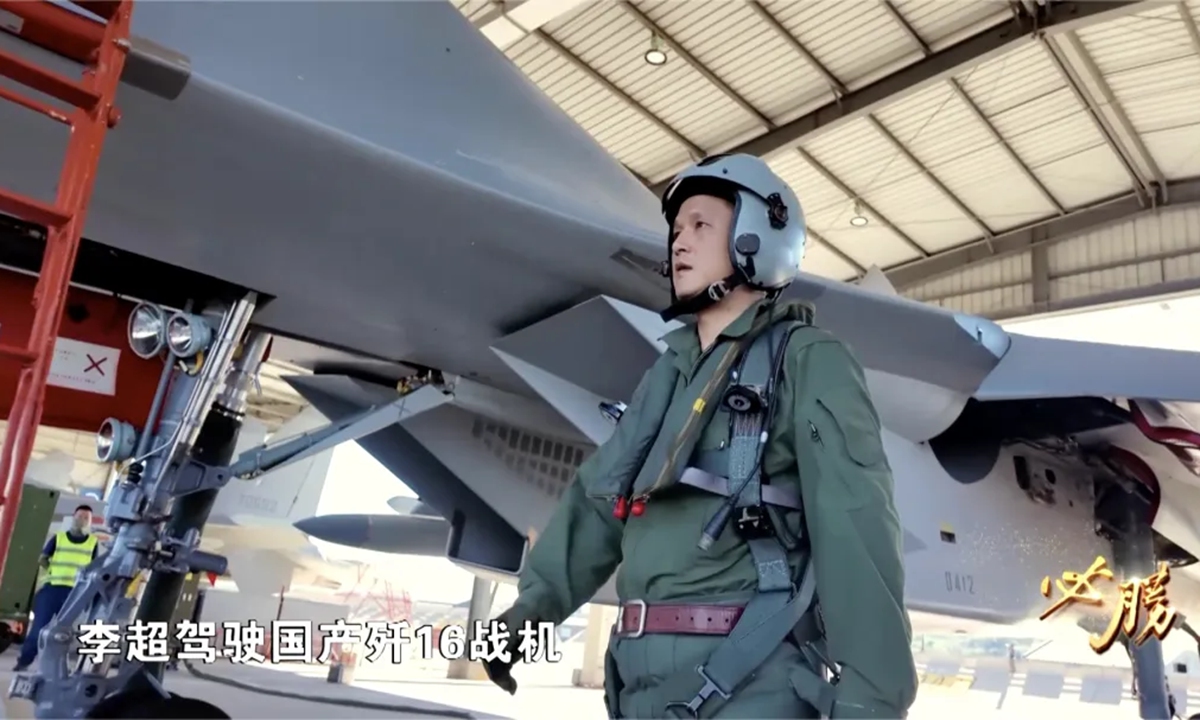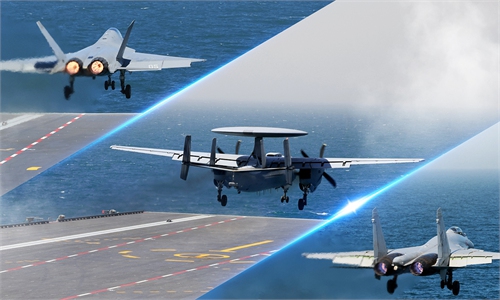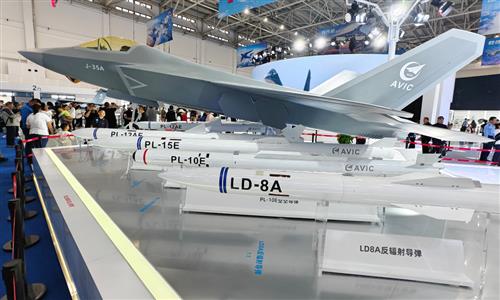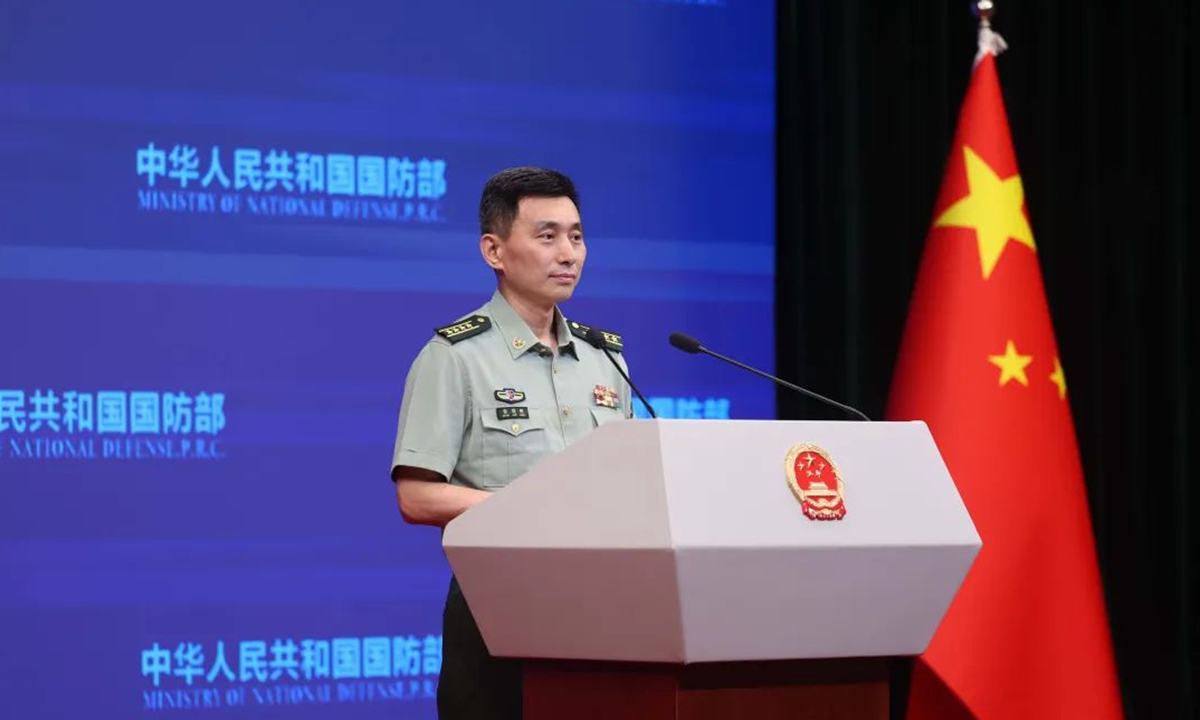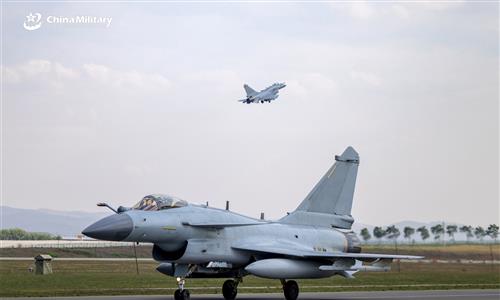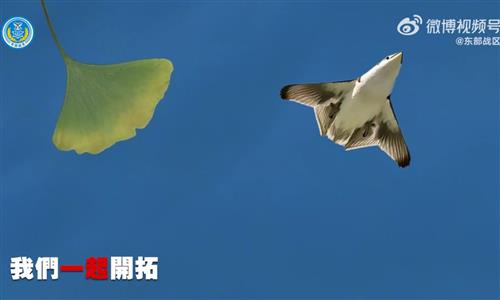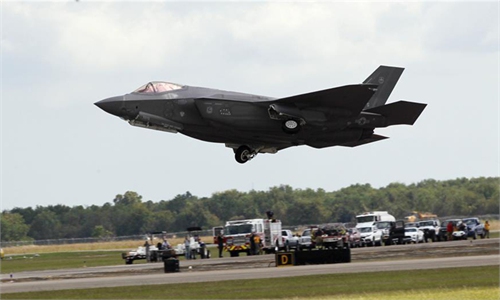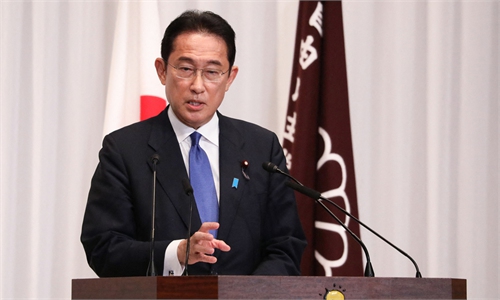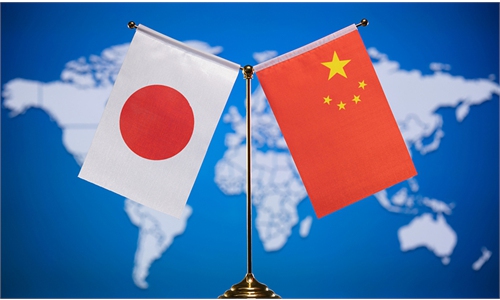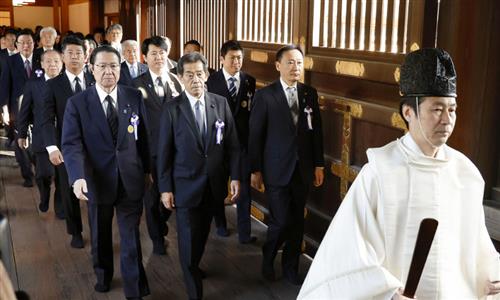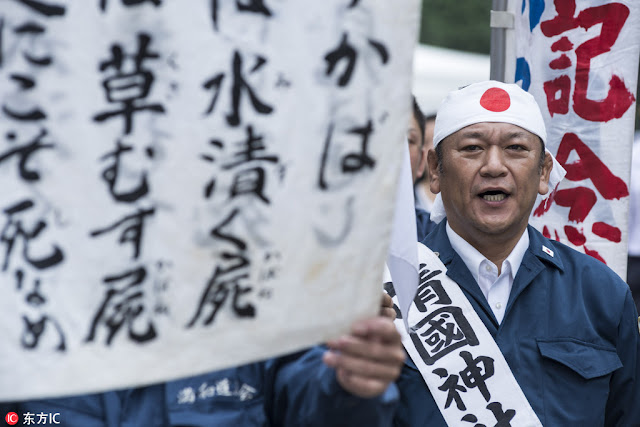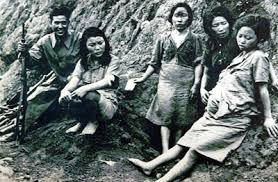China's first electromagnetic catapult-equipped aircraft carrier, the Fujian, has achieved a breakthrough by hosting the first catapult-assisted takeoff and arrested landing training for the J-15T heavy fighter jet, the J-35 stealth fighter jet, and the KJ-600 early warning aircraft, the Chinese People's Liberation Ar the links into your my (PLA) Navy announced on September 22, 2025. Photo: China Military Bugle
China's first electromagnetic catapult-equipped aircraft carrier, the Fujian, has achieved a breakthrough by hosting the first catapult-assisted takeoff and arrested landing training for the J-15T heavy fighter jet, the J-35 stealth fighter jet, and the KJ-600 early warning aircraft, the Chinese People's Liberation Army (PLA) Navy announced on September 22, 2025. Photo: China Military Bugle
The latest breakthrough made by China's aircraft carrier Fujian has attracted wide attention from foreign media outlets, with one of them saying the move was "a stunning leap forward" of China's aircraft carrier capability, while another called the sudden release a surprise. This comes after the Chinese People's Liberation Army (PLA) Navy on Monday announced that the J-35 stealth fighter jet, J-15T heavy fighter jet and KJ-600 early warning aircraft had completed catapult-assisted takeoff and arrested landing training on China's third aircraft carrier, the electromagnetic catapult-equipped Fujian.
Chinese experts said the new carrier, expected to enter service soon, will elevate the PLA Navy's capability to new heights.
The only other aircraft carrier in the world that has the EMALS (electromagnetic aircraft launch system) is the US Navy's newest carrier, the USS Gerald R Ford, which was certified for flight deck operations using the EMALS system in the spring of 2022, CNN noted in its report on the Fujian's technological breakthrough on Tuesday.
The EMALS system allows carrier aircraft to take off with heavier weapon and fuel loads than those operating off China's two older carriers, the Shandong and Liaoning, which feature ski-jump-type take-off ramps, enabling Fujian's aircraft to strike enemy targets from greater distances, CNN said. The report also quoted analysts as saying that the Fujian's ability to launch larger warplanes carrying higher munitions loads to farther distances will give the carrier a greater combat range than its predecessors in the Chinese fleet, providing the PLA Navy with blue-water capabilities.
Furthermore, The War Zone, a US-based defense specialist outlet, noted that not even the US Navy's USS Gerald R. Ford has ever launched a stealth fighter jet like the Fujian has done with the J-35. "[The Ford] has not launched an F-35C so far, making the J-35 the first stealth jet to achieve this feat. Based on earlier predictions, the F-35C may not do the same for some years," The War Zone wrote in a Monday article titled "China's Aircraft Carrier Capability Just Made A Stunning Leap Forward".
Naval News said on Tuesday that the "sudden release" by the Chinese military has taken the wider online commentariat somewhat by surprise. It noted that while the announcement was made on Monday, the flight operation-footage likely dates to earlier in 2025. Circumstantial evidence supporting this notion is again the particular condition of the ship at the time.
USNI News, the news website of the US Naval Institute, on Monday quoted analyst Ben Lewis as saying that the Fujian's test was a "significant milestone" for the Chinese military's carrier program.
"While it appears likely that the tests were done earlier this year, the choice to release the footage during Fujian's ninth sea trials suggests that Fujian will likely be ready for commissioning in the near future," Lewis said.
Chinese military affairs expert Zhang Junshe told the Global Times that with the Fujian's latest breakthrough, China is becoming a major aircraft carrier power, with both the carrier and its aircraft achieving world-class in key metrics.
This not only showed that the PLA has fully mastered and matured the application of complex electromagnetic catapults, but also reflected the continuous improvement in the capability and proficiency of naval personnel in operating high-tech equipment, Zhang Junshe said.
With the boost from electromagnetic catapults, the Fujian carrier formation can greatly expand its combat radius to cover as far as the second island chain in the Western Pacific, Zhang Junshe noted.
In response to a media request for comments on analyses claiming that the future commissioning of the aircraft carrier Fujian, the strike range of which will cover the second island chain, will surely change the strategic landscape in the Western Pacific region, and that some US analyses claimed that the Fujian will threaten US military deployment in the first island chain, Chinese Defense Ministry Spokesperson Zhang Xiaogang said at a regular press conference on Thursday that China always adheres to a defensive national defense policy.
The development of China's weapons and equipment is solely for safeguarding national sovereignty, security, and development interests. China will always be a force for peace, stability, and progress in the world, the spokesperson said.
Thursday marks the 13th anniversary of the commissioning of China's first aircraft carrier, the Liaoning, with September 25, 2012 becoming the start of an era when the PLA Navy started aircraft carrier operations.
Zhang Junshe, the expert, further noted that the experience and exploration gained from the Liaoning have provided significant reference and assistance for the operation, training, and deployment of subsequent aircraft carriers, leading to a substantial enhancement of China's integrated combat capabilities for aircraft carriers.
From having no aircraft carrier to commissioning its first one in 2012 to now entering an era with three, China's naval capabilities have advanced rapidly.
"The PLA Navy will also have greater confidence in safeguarding maritime rights and interests and carrying out missions on the far seas," said Han Wei, a professor at the PLA's Naval Aviation University, the Xinhua News Agency reported.
The electromagnetic catapult-assisted takeoff and arrested landing training on the Fujian will powerfully drive a generational leap in the integrated combat capabilities of the aircraft carrier formation, providing crucial support for conducting far seas combat missions and accelerating the navy's strategic transition from near seas defense to far seas defense, Han said.
Looking into the future, Zhang Junshe said in an interview with the military channel of China Central Television (CCTV) that China's aircraft carrier program still has significant room for development.
According to Zhang Junshe, future carriers will transition to utilizing catapult-assisted takeoff in terms of launch systems, while regarding propulsion, the direction is toward developing nuclear-powered carriers, CCTV reported.
Enhancing the PLA Navy's combat capabilities essentially translates to an increase in strength for safeguarding world peace, contributing to better defending the country, fulfilling international responsibilities and obligations, and maintaining global peace and stability, Zhang Junshe said.
When asked to confirm foreign media reports claiming that China's fourth aircraft carrier, also the first nuclear-powered one, is under construction at Dalian Shipyard, Chinese Defense Ministry spokesperson Zhang Xiaogang told the Global Times at a regular press conference on Thursday that he was not aware of the specific situation. He emphasized that China's aircraft carrier development is always conducted in accordance with national security needs and the progress of equipment technology. - Liu Xuanzun
RELATED ARTICLES
Multiple types of top Chinese defense products, including the J-35A stealth fighter jet and J-10CE fighter jet, are ...
China’s first electromagnetic catapult-equipped aircraft carrier, the Fujian, has achieved a breakthrough by hosting the first catapult-assisted takeoff ...
From Friday to Tuesday, the 2025 Air Force Aviation Open-day activities and Changchun Air Show are being held ...
